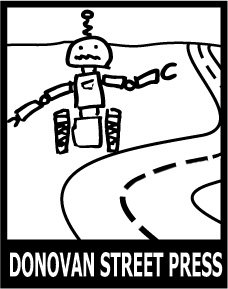Robert J. Sawyer’s SF Academic Conference at McMaster, 2013
“SF Academic Conference” is a repost from an earlier version of Assorted Nonsense. On September 14th, 2013, I attended an SF academic conference at McMaster University.
The conference was in honour of science fiction writer Robert J. Sawyer’s archival donation to the university library collection.
It wasn’t a typical science fiction convention. There was nobody in costume. This was a conference in which academics from all over North America presented papers and talks on the subject of science fiction. Talks on subjects like “Russia’s Afrofuturism” by Anindita Banerjee from Cornell, and “Sawyer and Czernada in the Classroom” by David DeGraff of Alfred University.
I wanted to attend for several reasons. One, I’ve known Rob Sawyer since before his first book was published, when I worked on a show he made for CBC Radio’s Ideas way back when. Flash forward a few years and we made some other radio together. I’ve read many of his books and have followed his career with great interest. So I just wanted to be there to help support the man during what would be a pretty significant event in his career.
Also, I just want to be a part of the Canadian science fiction community. I’ve read science fiction since I graduated from the Bobbsey Twins (yes, the Bobbsey Twins got me started on the path to reading) and I write science fiction. I knew that this would be a relatively intimate affair and afford me the opportunity to meet and chat with some really interesting folks in the SF community.
Finally, I was interested in hearing some of the presentations. But more on that later.
Getting to the conference proved a bit of a task. This involved a bus at quarter to five in the morning connecting to a subway connecting to another bus—a three hour commute. I hadn’t slept well so I wasn’t exactly in the best of form by the time I got to Hamilton. Making matters worse, I’d decided to wear my glasses because I was having problems with my contacts. I am almost always ill-at-ease when I wear glasses.
I was one of the first to arrive at the conference. I sat in Gilmour Hall wondering if it had been a mistake to come. I was actually feeling kind of panicky. Apart from Sawyer, I realized, I didn’t really know anyone. There would be a few people there I’d met before, like Peter Halasz and authors Julie Czernada and Robert Charles Wilson, but I didn’t really know them. I was confronted by a day of social isolation, crashing a party that really had nothing to do with me, attempting to make myself welcome in a community in which I probably didn’t really belong.
And I wasn’t quite sure how getting home would work.
(This is how my mind works when I’m tired and wearing glasses.)
Rob Sawyer arrived. He saw me, made a beeline for me, and welcomed me warmly. He almost seemed to go for a hug, which I botched by sticking my hand out. We settled for a hand hug. We chatted briefly, catching up (not having seen one another in about four years), and afterward I felt a little more welcome. Maybe this wasn’t such a mistake after all.
I sat back down.
Nah, it was still a mistake.
Two women entered and sat two rows ahead of me. Weird, I thought. They look just like a mother and daughter pair from my Karate Dojo. Impossible.
But the daughter was university age. In fact, she’d be starting university this year.
I got out my Samsung Galaxy and texted my Sensei. Is so and so attending McMaster? Does she like Science Fiction?
Sensei texted me back within minutes. Yes, and “she loves that stuff.”
It had to be them.
Emboldened, I made my way to their row and sat down beside them.
“Hey,” I said.
The daughter looked at me blankly. The mother looked at me blankly. I had the wrong mother daughter pair. I felt lost. Alone.
“Would it help if I put on a gi?” I tried.
Finally recognizing me, they loosened up immediately. “Hey, what are you doing here?” the mother asked.
I explained all, and so did they.
From that moment on the entire day was gold.
They were a lot of fun. Margaret (the mother) and I attended all the academic sessions together, writing notes to one another throughout with our (to us, at least) witty observations. The three of us had lunch and dinner together and I got to know them both a lot better than when violently throwing punches and kicks at one another back at the dojo. And Margaret generously drove me home afterward.
The day began with a speech by Canadian author John Robert Colombo called “400 years of Robert J. Sawyer” (apparently Sawyer is older than I thought). It’s a great pleasure listening to accomplished public speakers like Colombo. He speaks well and elicits many laughs. One listens to every word. The gist of his speech was about how science fiction is about four hundred years old, dating back to the writings of Cyrano de Bergerac (“The Other World”). The question he posed was, would we be reading Robert J Sawyer in four hundred years? To which I would emphatically respond, not unless we make a great deal more progress in the science of senescence. Okay, OTHER people might well be reading Sawyer, but probably not me, so I’ll just have to do my best to read the rest of his works in however many years I have left.
After listening to Colombo, Margaret and I trotted off to Chester New Hall where we took in Herb Kauderer, Associate Professor at Hilbert College & PhD Candidate, Buffalo, talking about “Fedora Hats and the Great Gazoo: Pop Culture References in Robert J. Sawyer’s novel Triggers and Red Planet Blues.” At the risk of doing a terrible injustice to Herb’s presentation, which was much more expansive and erudite than I can possibly present here, Herb wondered (among other things) whether the pop culture references in Sawyer’s work were distracting, especially considering some of them could not possibly be understood or appreciated (without research) by many younger readers (the Great Gazoo dates back to the mid-sixties). I believe Herb came down on “no,” and I would agree. I wondered as Herb spoke whether Sawyer’s work (and the work of other modern authors) would have to be annotated in the future, as classic texts are now. Of course they’ll have to be.
Next up were Rebecca McNulty (MA Candidate, University of Florida) with a speech entitled “‘Let Me Reveal Your Future!’: Robert Sawyer’s Use of Prediction in Near-Future Narrative”, followed by Carrie J. Cole (Indiana University of Pennsylvania) discussing “Science and the Staging of the Speculative Imagination:Interdisciplinary and Intertextual Performance Strategies”.
I love these titles. The speeches were usually even more interesting than the titles suggested. I won’t get into the gist of all the speeches, but I do have one critique, and it’s about public speaking. And I trot this out based on my years working for CBC Radio, working with freelancers and actors of all stripes. This is what I have learned. When speaking in public, it is VERY hard to be entertaining and properly engrossing if you are reading from notes. Almost certainly you will read too fast and the audience will miss much of what you say. It’s okay to have notes, it’s even okay to have it all written down, but don’t read from it. Refer to it from time to time if you have to. The speakers at this conference illustrated this to great effect. Some read, others spoke. The ones who spoke were a lot more fun to listen to than the ones who read (unless they were doing a rehearsed reading of an excerpt from a book, which is different).
And I say all this as someone who struggles sometimes with public speaking. It’s hard to put down the notes. What if you freeze? I froze once during a speech. But that was because I wasn’t prepared (and somebody had told me not to be funny. I need to be funny, or at least try to be, to put myself at ease before the audience). So that’s my two cents. Lots of folks at the conference had plenty of interesting things to say, but they need to take a page from John Robert Colombo’s book and put down the notes.
One great talker I’ll point out was David DeGraff of Alfred University talking about “Sawyer and Czerneda in the Classroom.” DeGraff, a youthful (despite his full head of gray hair) professor spoke with enthusiasm about using fiction effectively as an aid to education. I’d take one of his classes in a heartbeat.
Another great speaker—actually, among the best of the day—was Chris Szego of Bakka-Phoenix books, who spoke about “Independent Bookselling: Two Parts Circus, One Part Gong Show.” She spoke from the heart about her experiences selling science fiction books, complete with facts and figures, and refuted a few myths about the trade, and was quite engaging.
One man I really wanted to hear talk was David Hartwell, then Senior Editor at TOR books. He was among the last to speak. I had heard him talk at Anticipation in Montreal a few years back and he had some great things to say about the editing process which have since informed my writing. He was Sawyer’s editor at Tor and has a reputation for being good to Canadian science fiction writers. He read excerpts from a book he was working on about science fiction anthologies.
There was a Q & A afterward with both Hartwell and Szego, during which Hartwell commented that they are always on the lookout for “talented” writers. I asked him to define talented, which got a big laugh from the audience. But I really wanted to know. How does he define talented? What the heck does that mean? His answer was rather flip, which also got a big laugh, and I’m afraid I don’t remember quite what it was, though he (or maybe it was Chris, or Rob) went on to say essentially that talent manifests itself in many ways.
I spoke with Hartwell afterward. He apologized for his flip response, though it hadn’t bothered me at all, its saving grace being that it was both funny and true (if only I could remember what it was!) I was treated to a lengthy conversation with the man, during which (I fear) I peppered him with many questions about editing and writing, all of which he answered graciously. I asked him (for instance) what kind of editing one does on a writer of Sawyer’s calibre (“it’s all about detail,” he told me).
Before we parted I couldn’t resist telling him that I would love to send a manuscript his way one day. “Send it to me now,” he responded, to my astonishment.
“What if the last five pages aren’t quite done?” I asked him, panicking a little.
“Just make sure the first five pages are perfect,” he said.
Naturally I forgot to ask him for his email address (Rob generously provided that later).
Hartwell’s offer was a terrific end to a thoroughly enjoyable day.
Update Aug 29th 2023Sadly, David Hartwell passed away January 20th, 2016.


